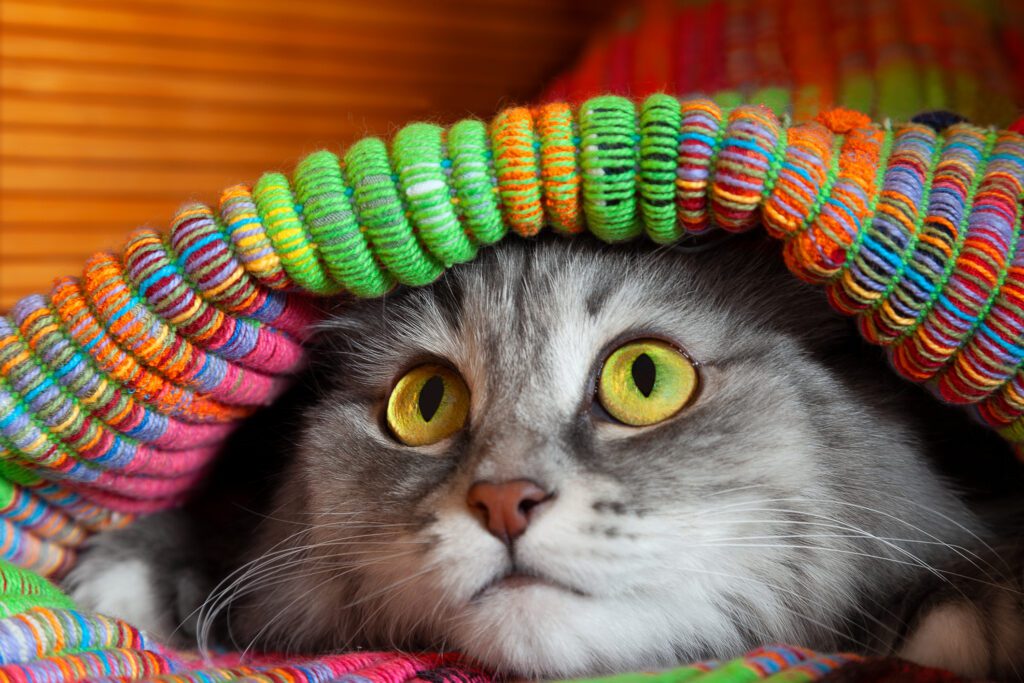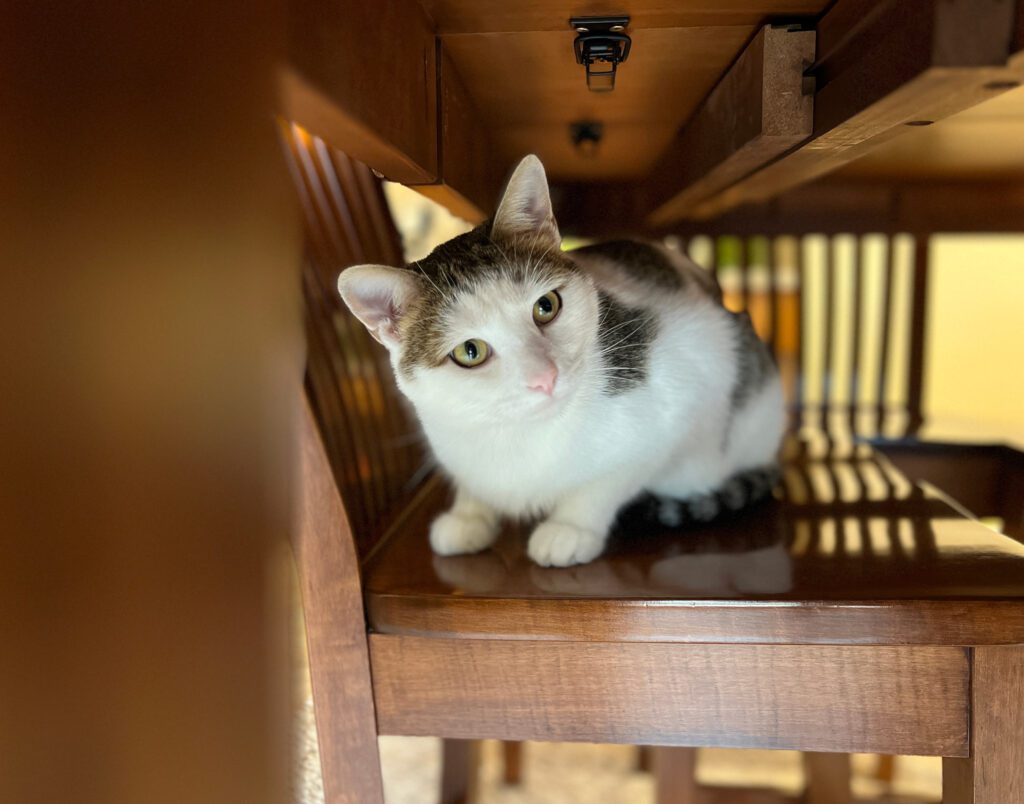If you have an anxious cat, you may find yourself wondering what caused her to become so anxious. Whether your cat has been anxious from day one or she’s recently developed more anxiety in her life, it’s important to get to the bottom of what’s going on.
You can use our Holmdel, NJ, animal hospital‘s article to learn the reasons for your cat’s anxiety and when it might be time to talk to your vet about their mental health needs.

Separation Anxiety
Separation anxiety is one of the most common causes of anxiety in cats. Although many pet owners tend to associate separation anxiety with dogs, cats can experience this issue, too. If your cat’s anxiety gets worse when you’re about to leave home or when no one is at home with her, then this is probably the reason.
Work with your cat on her separation anxiety by giving her lots of treats and attention when you return from being gone. It may take time, but you can help train this problem away.
Lack of Socialization with Cats
Lack of socialization with other cats (and other animals too) can cause cats to become more anxious. If your cat has not seen another cat since her littermates when she was a kitten, she likely won’t know how to respond when she comes into contact with one. And if she’s never been around dogs before, it’s safe to assume a new dog in her life might make her anxious.
Some cats are also naturally more afraid of other animals. Each cat is different, and it’s important to take time to figure out your cat’s limits in this way.
History of Abuse
If you’ve adopted your cat from a shelter, there is a chance she was abused, mistreated, or neglected in her previous home. And if your cat was a stray before you took her in, she may have experienced a difficult and traumatic life. These are all reasons that can contribute to anxiety in cats.
Although cats with a history of abuse and neglect may never fully recover from their anxiety, they can still learn to be calm and relaxed when they’re at home. Keep your cat indoors if you know or suspect this is the cause of her anxiety, and spend plenty of time petting and cuddling with her if she will let you.
Pain
Pain can cause your cat to become fearful, anxious, and scared of being approached. She may hide, tuck her tail close to her body, and try to avoid coming into contact with you or any other members of the family. This type of behavior, especially without an obvious cause, should always indicate your cat needs to be seen by a vet.
The underlying source of the pain needs to be treated first before worrying about your cat’s anxious response. If your cat is no longer in pain after her treatment, then she is much less likely to show signs of anxiety.
Illness
Many types of illnesses may cause your cat to become anxious. When your cat isn’t feeling well, she is likely to hide and become more guarded, which is just her instinct for survival. This type of anxiety looks quite different from a cat who is anxious due to an external problem, and it’s typically easy to recognize.
Any sudden behavioral changes in your cat—whether they are anxiety-related or other issues—should be examined by your vet as soon as possible. Most of the time, sudden behavioral changes are related to illness in cats.
Traumatic Situation
A traumatic situation is any situation in which your cat becomes overly frightened by her environment. Some cats may become traumatized by visits to the vet, while others may feel this way about thunder, fireworks, or riding in the car.

No matter the root cause of your cat’s traumatic response, she is likely to become very anxious in these situations. The good news is that these anxiety issues tend to fade after the traumatic situation has passed. However, you can still help your cat stay calm by talking to her in a soothing voice and providing her with a safe, cat-friendly space when possible.
Our Holmdel, NJ, Vets Can Help with Your Cat’s Anxiety
Most of the time, cat anxiety can be managed with the help of proper training and condition. If the cause of your cat’s anxiety comes from a physical health issue, treating or managing the physical problem can often help the mental issues as well.
Only your vet can tell you for sure what’s causing your cat’s anxiety. However, you can use the information outlined above to narrow down the possibilities and determine what you should ask your vet when you take your cat in for a visit.
Our Holmdel, NJ, animal hospital offers treatment, including behavioral medicine if needed, for your cat’s anxiety. Give us a call at (732) 671-3110.
